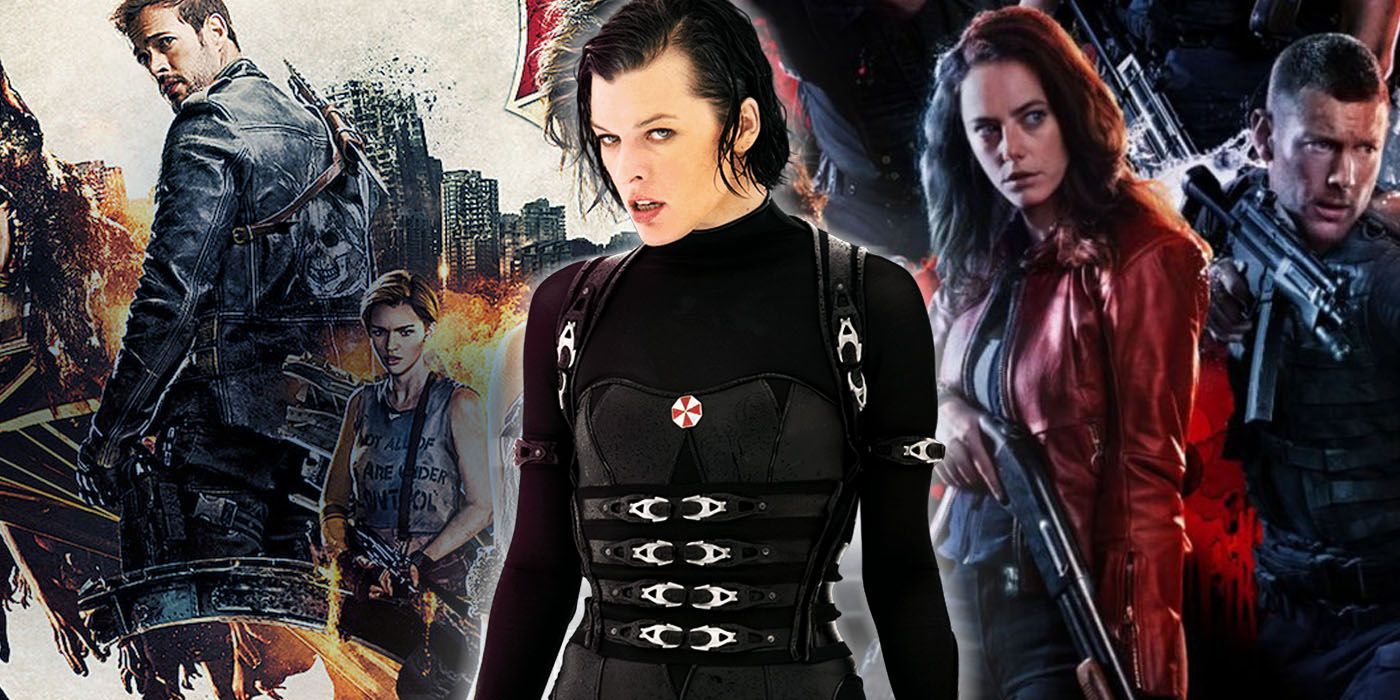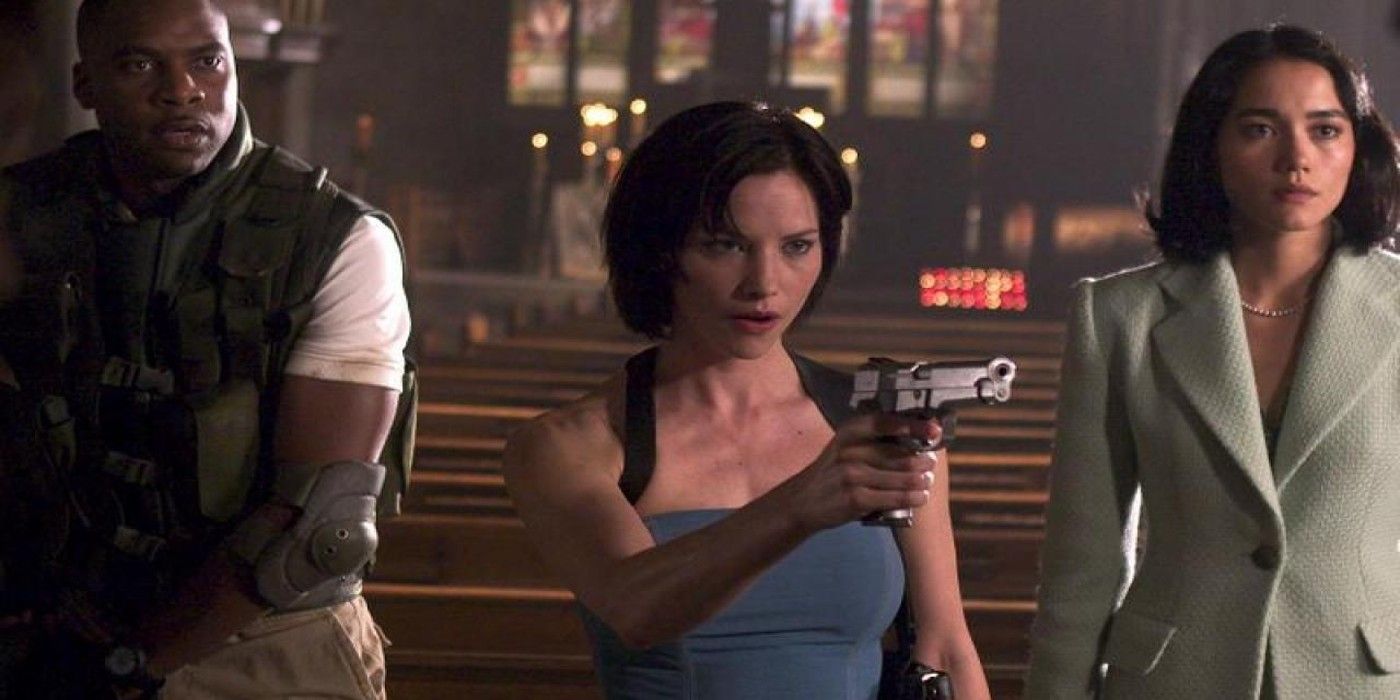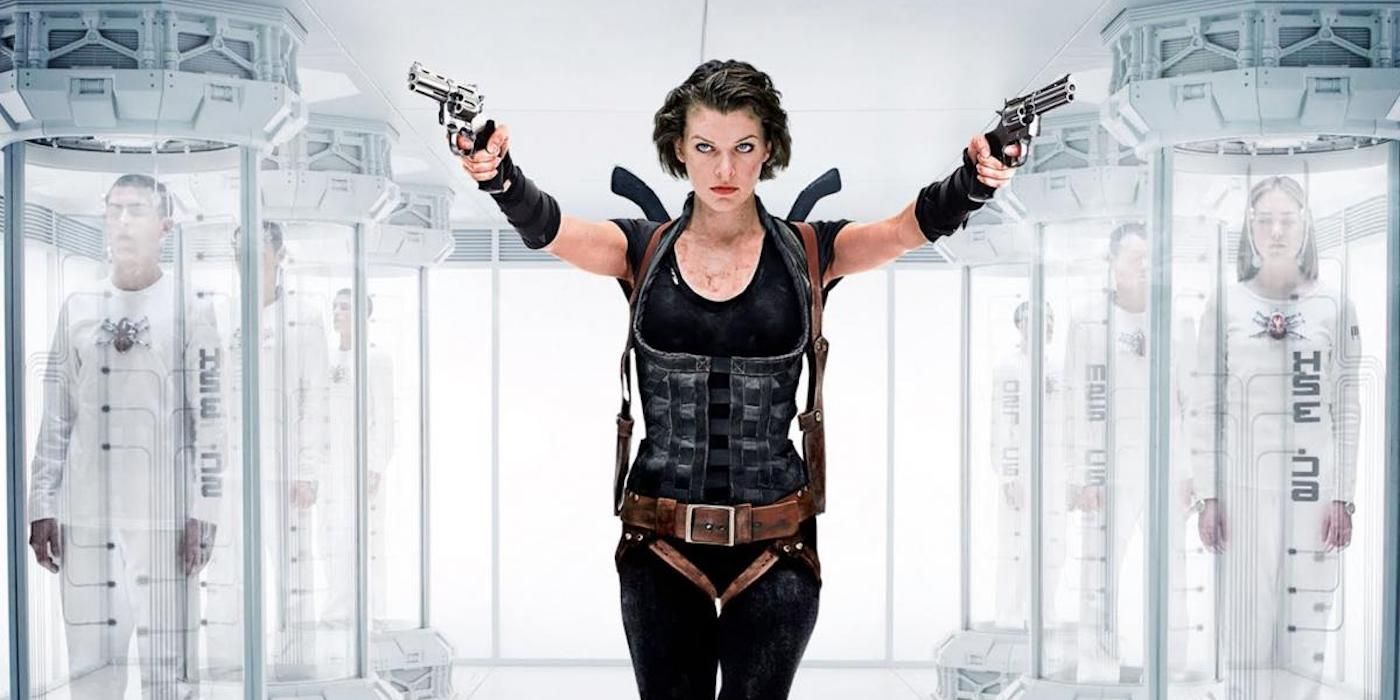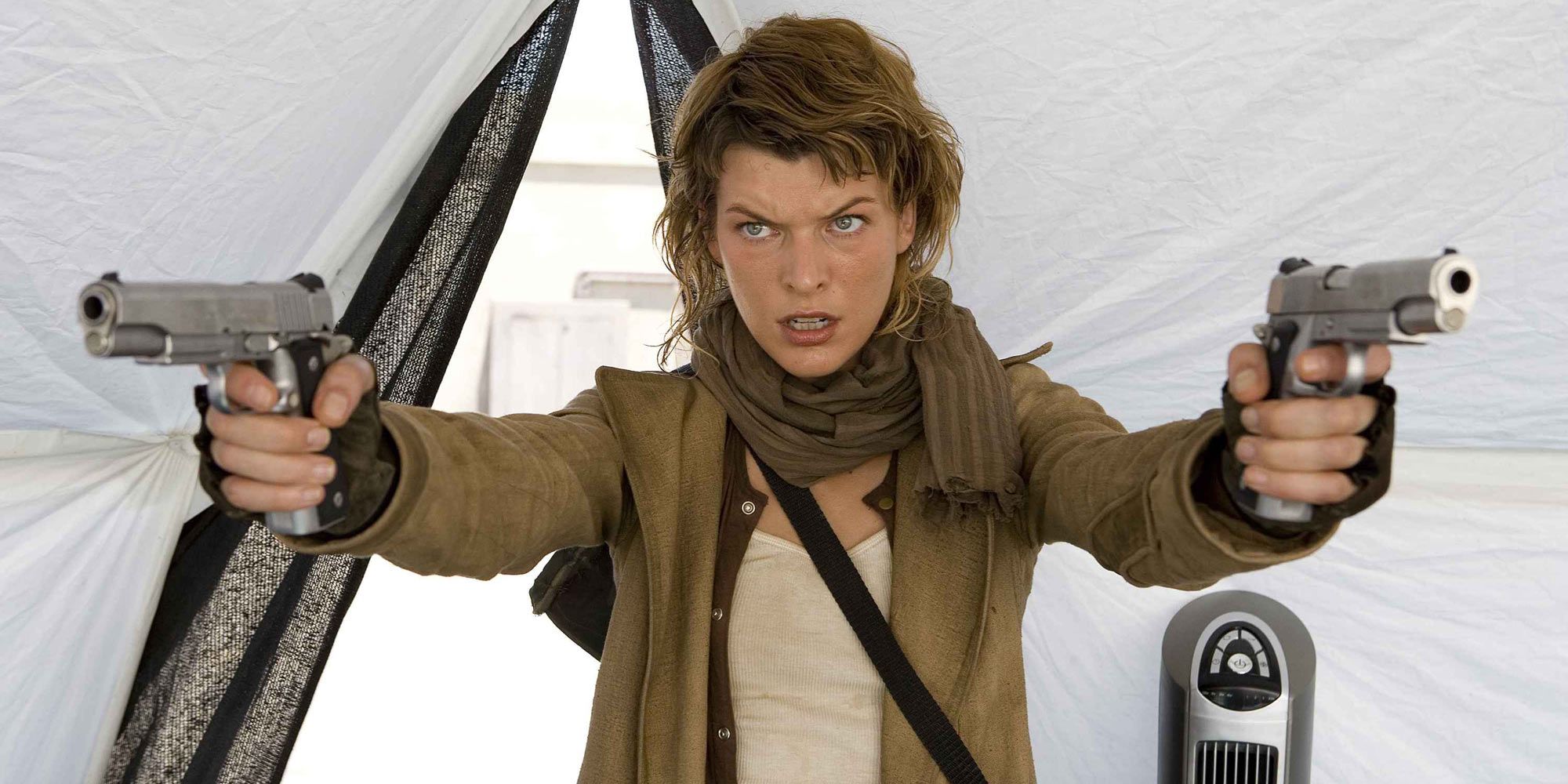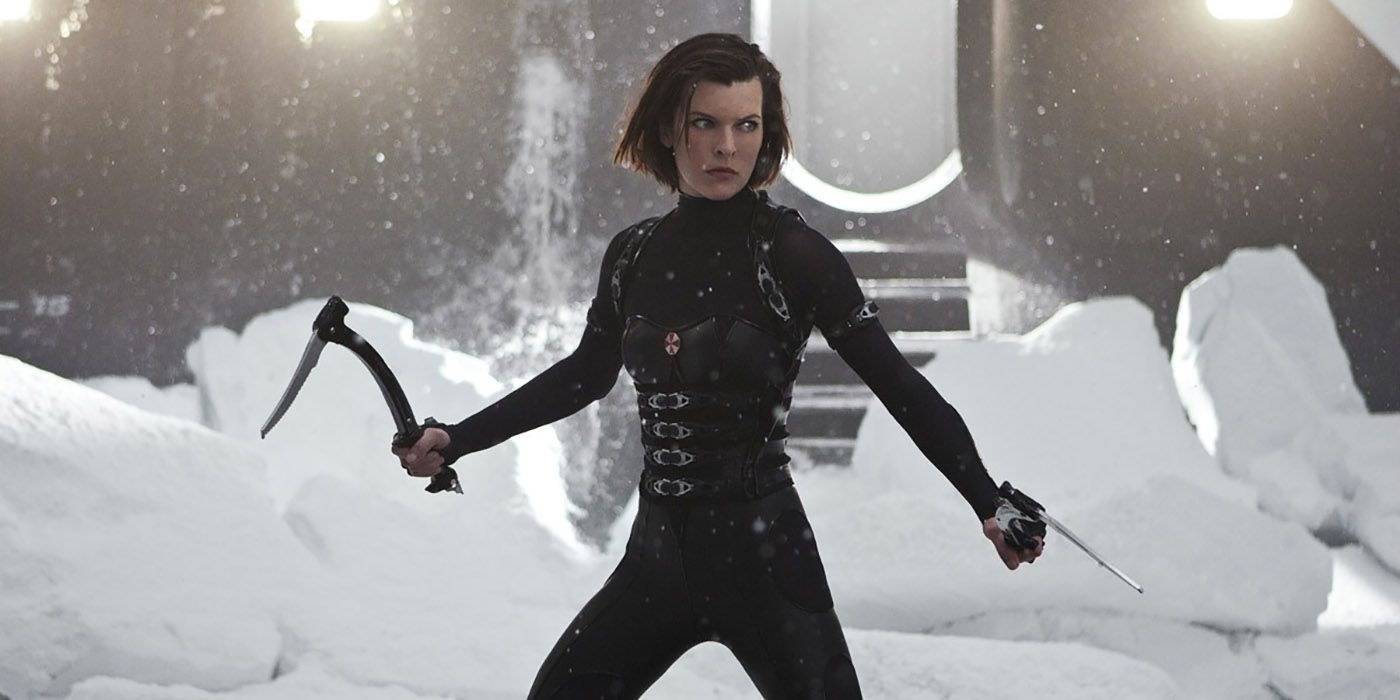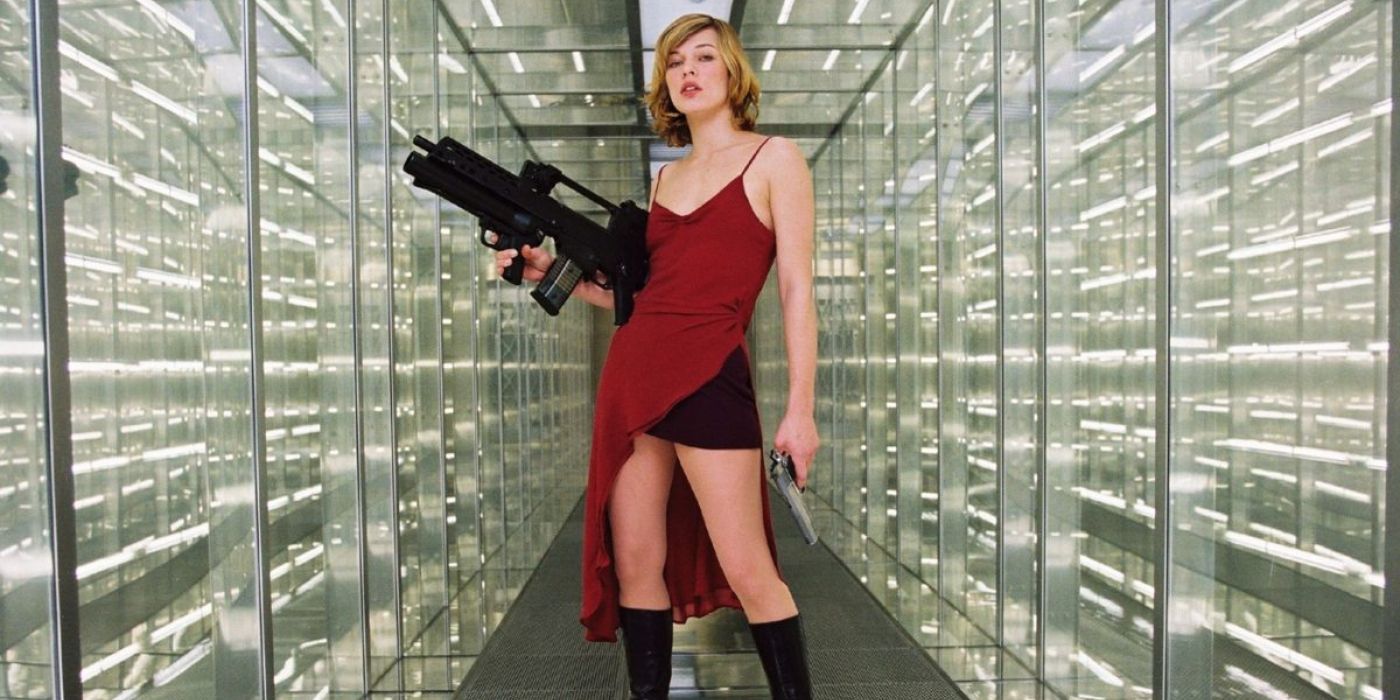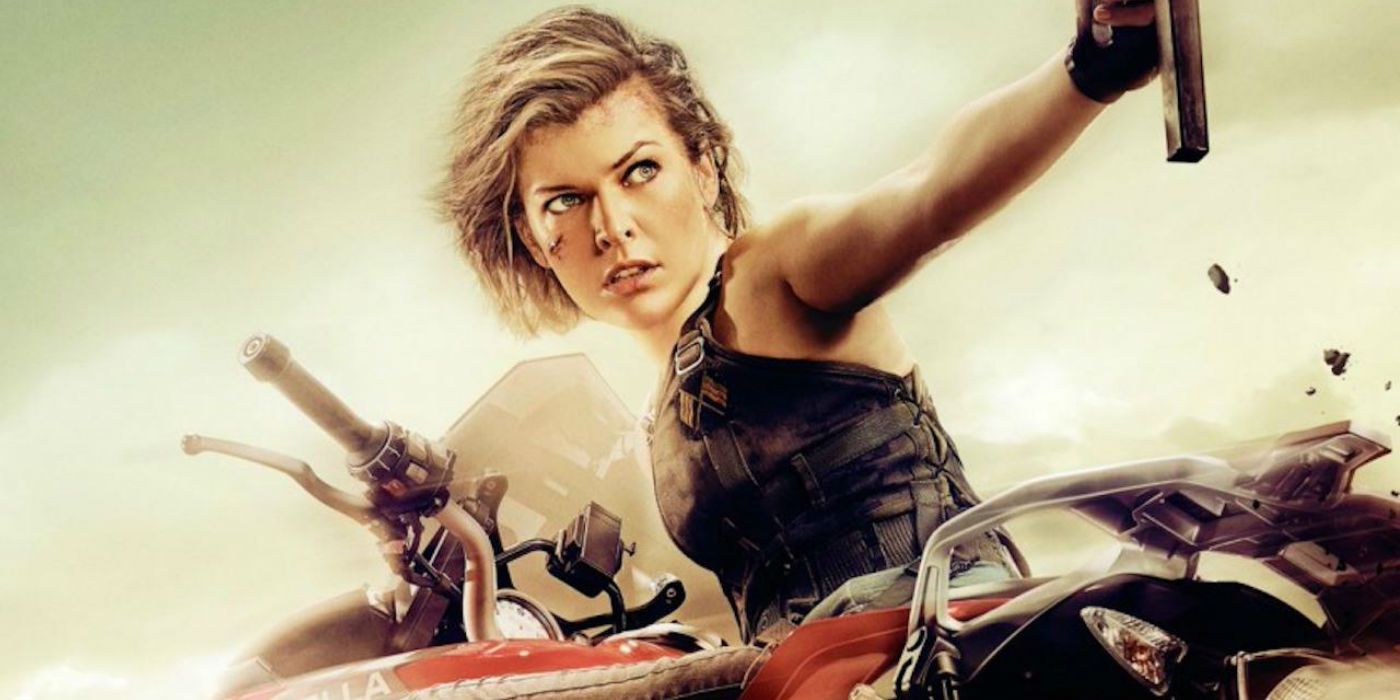The Resident Evil movie franchise is one of the most successful series of video game adaptations ever. While that's a highly qualified distinction, it's still a valid one. Starting with 20002's Resident Evil, the series produced six movies starring Milla Jovovich's Alice over the course of 14 years. Resident Evil succeeded in becoming a long-running franchise where other video game adaptations failed.
While the Resident Evil movies struck enough of a chord with audiences that they succeeded financially, they never won over diehard fans, who were irritated by their loose adaptations of the games. Critics were also never particularly enamored with the series. With a more video game faithful reboot hitting theaters soon, here's a look back at what critics thought of the previous six live-action Resident Evil movies, according to Rotten Tomatoes' Tomatometer.
6. Resident Evil: Apocalypse - 19 Percent
Resident Evil: Apocalypse is a rare Resident Evil movie that actually adapted significant elements from a video game. Its version of fan-favorite Resident Evil protagonist Jill Valentine and the monstrous Nemesis was plucked straight out of the PlayStation classic Resident Evil 3: Nemesis.
While it might have earned some brownie points from fans, Apocalypse didn't earn much goodwill from critics. The faint praise it received considered it better than the first movie. Perspectives ranged from concern about what video game adaptations meant for the future of cinema to dread that there would be a third movie in the series. Multiple critics used the one word no action-horror film wants to be called -- boring.
5. Resident Evil: Afterlife - 21 Percent
By the time the fourth installment in the Resident Evil series hit theaters, critics had become numb to it. Some outliers existed. NME's James McMahon considered Afterlife's lack of zombies "unacceptable," even by the series' established standards. io9's Annalee Newitz found its mash-up of genre staples like The Matrix and Wesley Snipes' Blade trilogy delightful.
The critical consensus was that Afterlife was more of the same. Critics were unmoved by the movie jumping on the 3D bandwagon and casting future Arrowverse veteran Wentworth Miller as iconic video game character Chris Redfield. At this point, the consensus was that everyone knew what they were getting into in a Resident Evil movie.
4. Resident Evil: Extinction - 25 Percent
Resident Evil: Extinction attempted to shake up the series by moving from Raccoon City to a post-apocalyptic Western setting. Veteran genre director Russell Mulcahy, best known for directing the first Highlander movie, received some of Extinction's faint praise. Critics appreciated the way he staged action scenes and drew atmosphere from a zombie-filled Las Vegas years before Army of the Dead covered similar ground. Critics agreed that Extinction was more of the same but differed in whether that was a good or a bad thing. Most held the latter opinion, but it did have a handful of boosters that enjoyed it as a guilty pleasure.
3. Resident Evil: Retribution - 28 Percent
Retribution delivered ample service for fans of the Resident Evil games and movies. It added popular characters from the games like Leon Kennedy and Ada Wong. They joined a cast that included returning movie characters like Jill Valentine and Michelle Rodriguez's Rain. None of that won over critics who had already sat through multiple Resident Evil movies and grown tired of them. Still, the penultimate entry in the series picked up some backers, who appreciated Paul W. S. Anderson's return to the director's chair. Critic Ignatiy Vishnevetsky called him "the world's least pretentious auteur" and appreciated what he brought to the table visually. Vishnevetsky's take stands out as a more bold appreciation of the Resident Evil movies than the usual "guilty pleasure" designation they received in the rare positive reviews.
2. Resident Evil - 36 Percent
The first entry in the Resident Evil franchise received a similar critical consensus as the five sequels it spawned. Negative reviews harped on the movie for being more of the same, in this case, another sub-par video game adaptation. Some critics noted that it was a bad adaptation, while others bemoaned the idea that a video game was being adapted, period, setting a pattern as repetitive as the movies themselves.
There was still enough novelty to zombie stories, and Milla Jovovich starring in one, that it won over some critics. Critic Greg Maki went as far as calling it "Night of the Living Dead for the 21st century," which is high praise that eluded the rest of the series. Set pieces like Jovovich's Alice kicking a zombie dog in slow motion and the laser grid deathtrap helped make the first Resident Evil stand out in a way that future installments didn't.
1. Resident Evil: The Final Chapter - 37 percent
The final movie in Jovovich and Anderson's Resident Evil saga elicited mostly the same responses from critics as the previous entries. The series was in full "for completists only" territory at that point, although at least one critic didn't think following the plot would be difficult for anyone coming into the series blind, although that's not really a compliment. The Resident Evil movies were what they were by this point, and critics reacted accordingly. Critics with positive reviews were more complimentary of the action scenes in The Final Chapter than previous entries, but overall, reactions were in line with the previous sequels. The most notable backhanded compliment came from The Main Edge's Allen Adams, who considered it "remarkable" that Anderson was able to Resident Evil into a long-running movie franchise, seemingly through sheer force of will.
To see that newest franchise film, Resident Evil: Welcome to Raccoon City drops in theaters Nov. 24.

